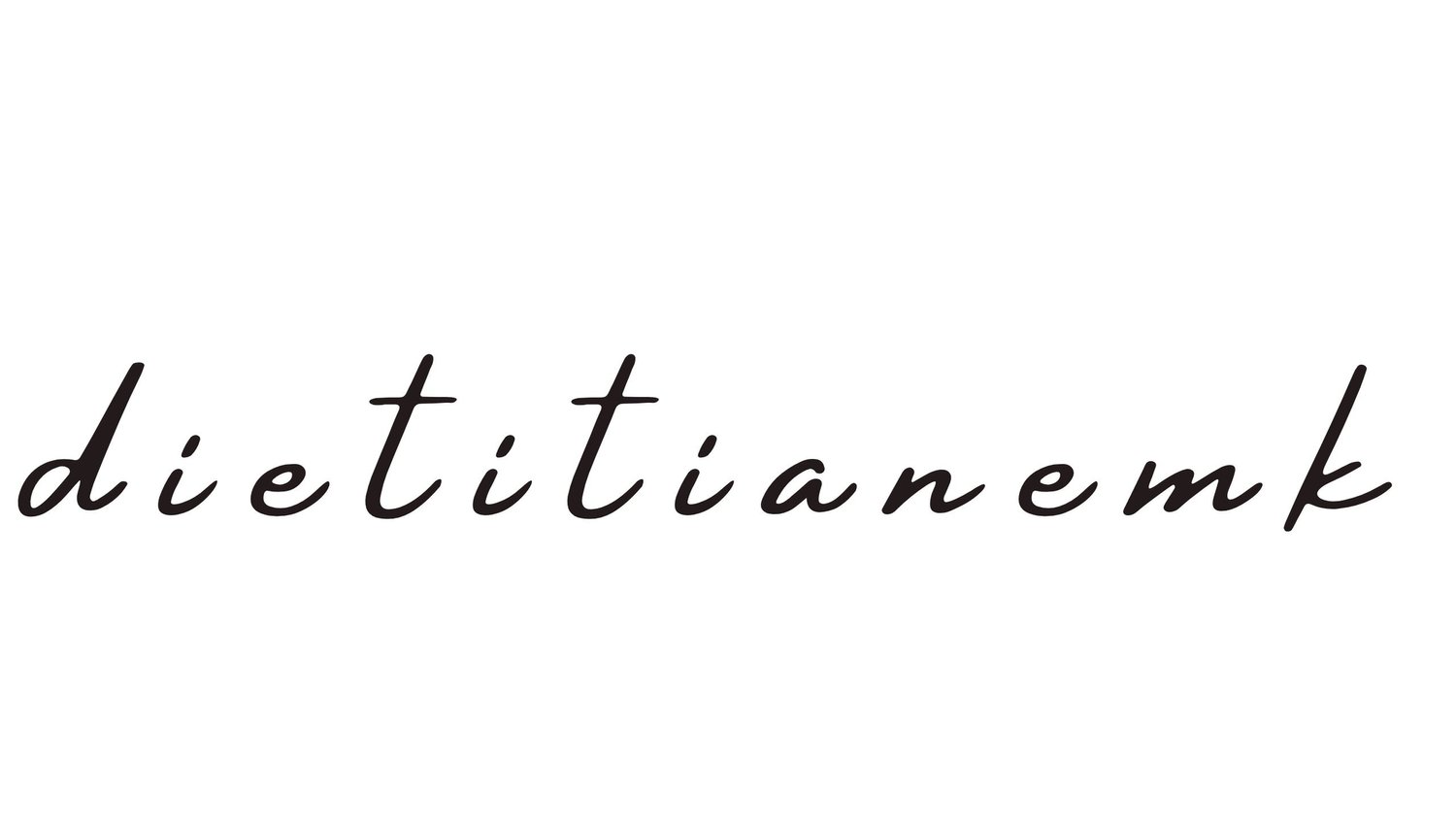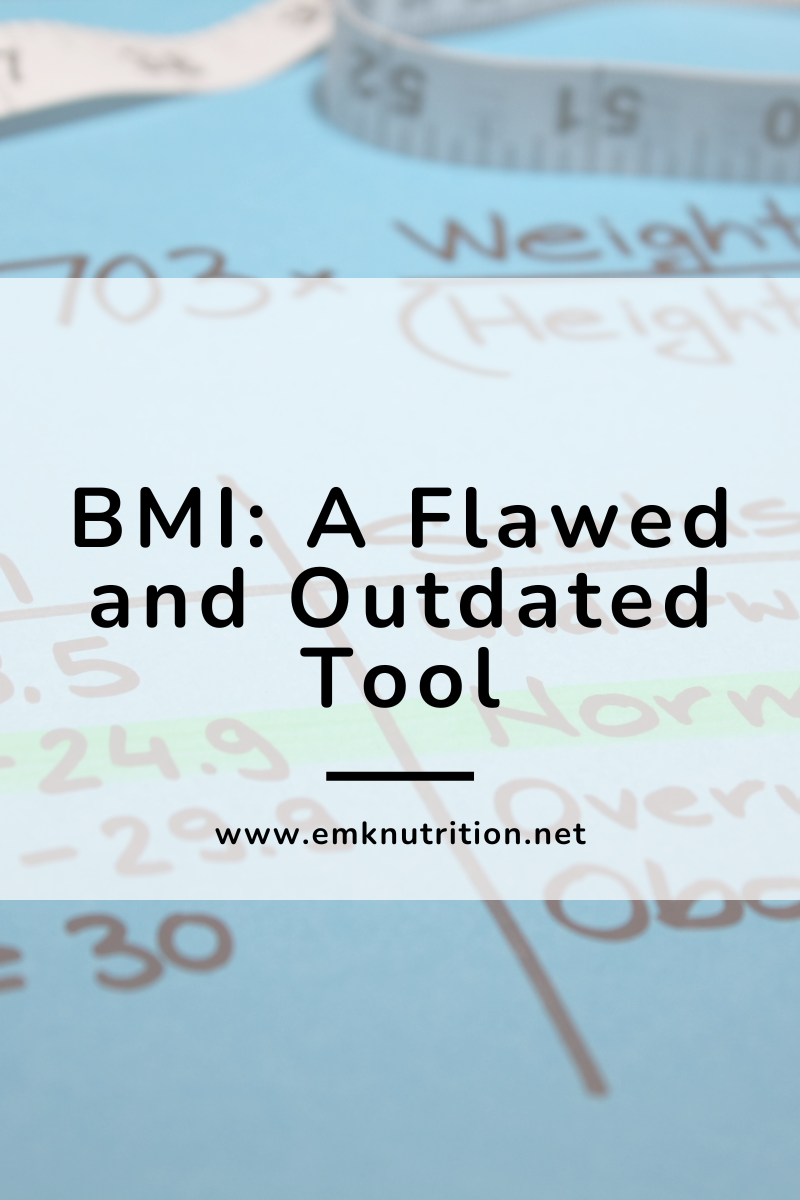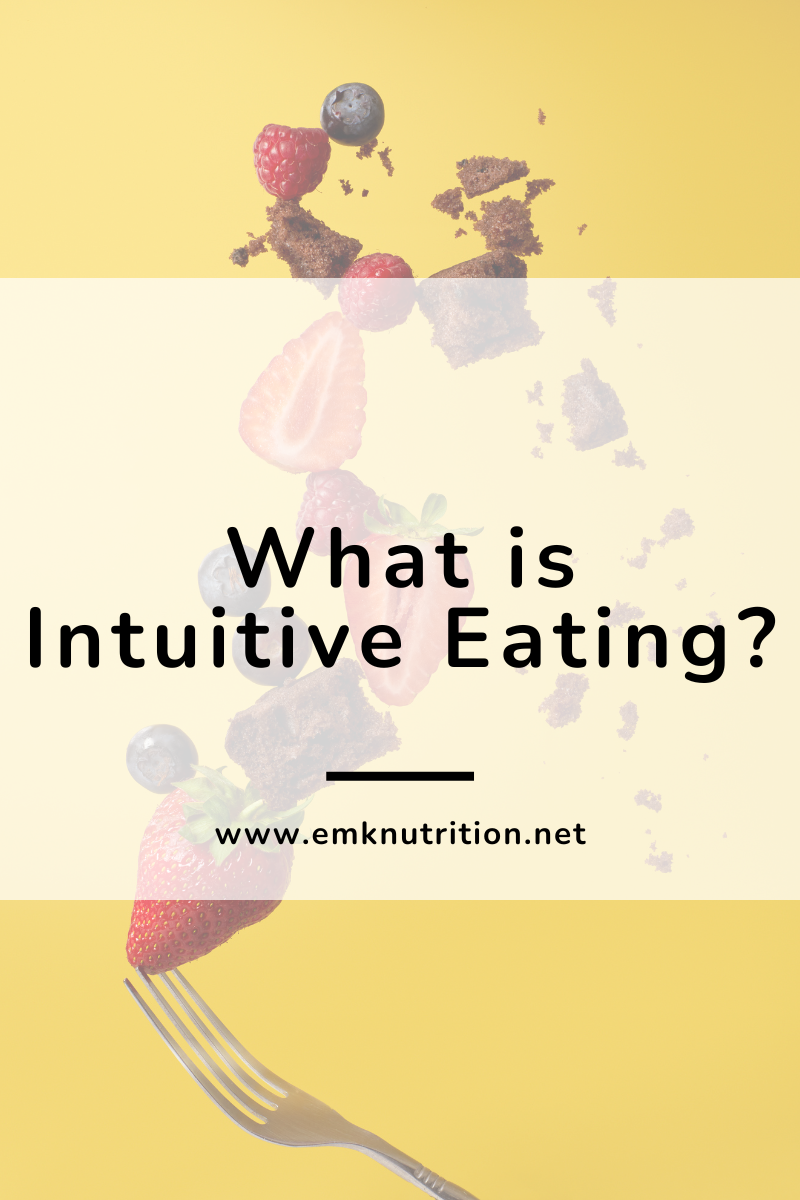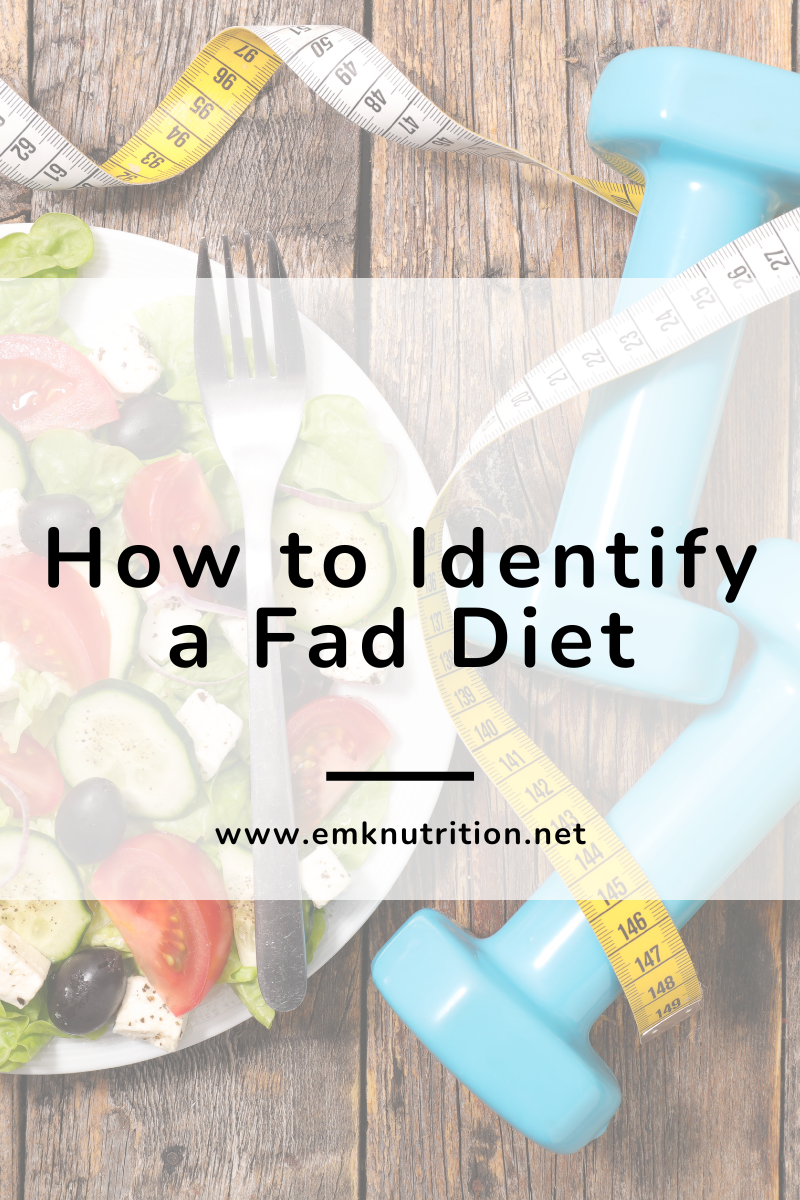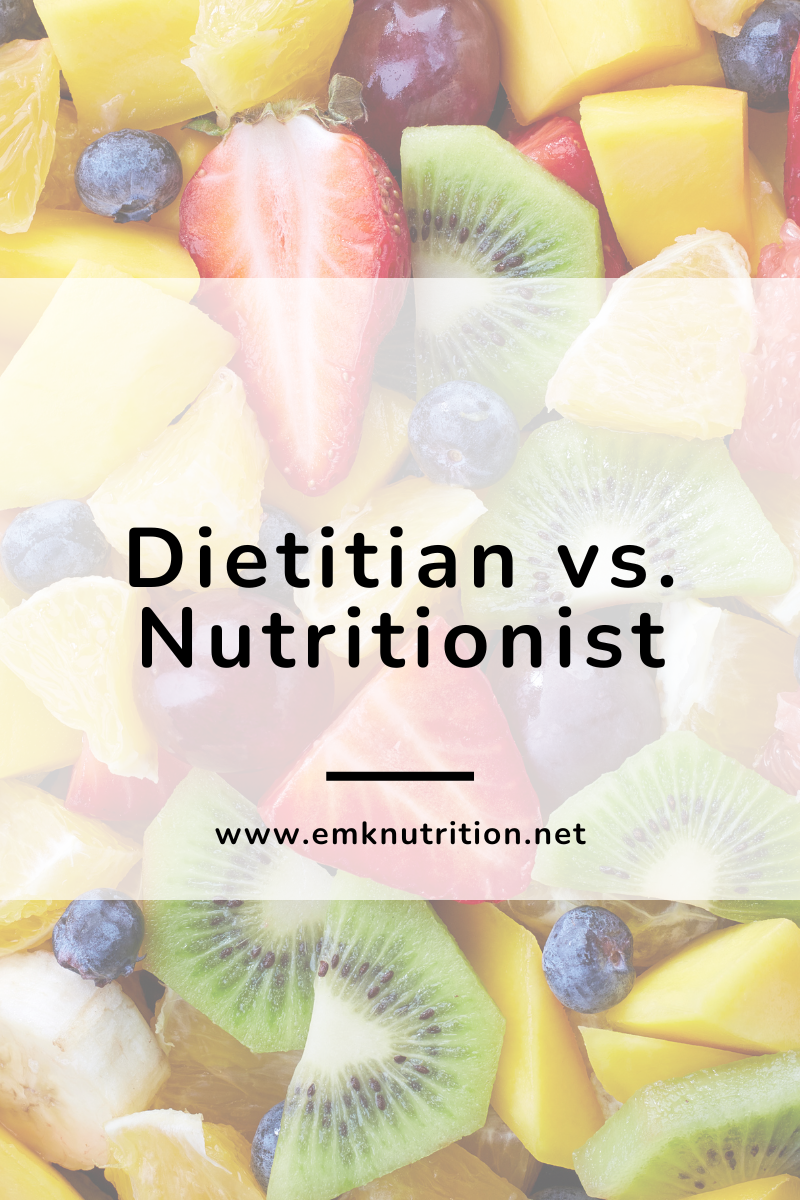Dietitian vs. Nutritionist: What’s the Difference?
Written by Emily Krause, MS, RDN
You might have heard the term “registered dietitian” or even “registered dietitian nutritionist” before. Is this the same thing as being a “nutritionist”?
Which one should you seek out nutrition advice for? We’ll dive into the differences in education, liability, and regulation of the terminologies in this article.
**Please note these requirements are for the United States. I’m not as familiar with other countries’ requirements.
Training to Become a Dietitian
So let’s start off with the education component. The most common path for Registered Dietitians (RDs) or Registered Dietitian Nutritionists (RDNs) looks like:
Option 1 to Become a Registered Dietitian:
4-year Bachelor’s degree at an accredited university
Complete an accredited Didactic Program in Dietetics (DPD)
Complete at least 1200 hours of supervised practice during an accredited dietetic internship (DI)
Required to pass the Commission on Dietetic Registration (CDR) examination to earn their “RD” or “RDN” credential
There is no difference between a RD or RDN, it’s up to the provider’s preference of which they’d like to associate with.
Option 2 to Become a Registered Dietitian:
Complete a 4-year Bachelor’s degree
Complete an accredited coordinated program (CP) including 1200 hours of supervised practice
Pass the Commission on Dietetic Registration (CDR) examination to earn their “RD” or “RDN” credential
Option 3 to Become a Registered Dietitian:
Complete a graduate program that’s been approved by the Accreditation Council for Education in Nutrition and Dietetics (ACEND) that incorporates at least 1,000 hours of experiential learning.
Pass the Commission on Dietetic Registration (CDR) examination to earn their “RD” or “RDN” credential
As of 2024, Dietitians are required to hold a Master’s degree before they can sit for the RD exam.
Additionally, all dietitians have to complete 75 hours of continuing education every 5 years.
Training to Become a Nutritionist
There are no regulated requirements.
The educational requirements to become a Nutritionist consist of… nothing. There are no educational requirements to proclaim yourself as a Nutritionist. Some Nutritionists take 4-week courses or some take up to 1-year of courses, but there is no regulation around who can call themselves a Nutritionist. My dentist could call themself a Nutritionist. Your primary care physician can call themself a Nutritionist. Anyone can call themselves one.
Scope of Practice
The RD credential is protected because Dietitians will practice Medical Nutrition Therapy (MNT). MNT is what you may think of with diabetes care, renal care, oncology, eating disorders, gastrointestinal issues, etc. MNT is the specific disease-treatment through nutrition counseling and management. For the safety of the patient or client, we want to ensure providers with adequate training are providing nutritional advice.
How are Dietitians and Nutritionists Regulated?
To keep this short and sweet, Registered Dietitian or Registered Dietitian Nutritionist is a regulated term. This means that the “RD” and “RDN” you may see behind someone’s name is protected and not anyone can use it. This would be like someone throwing “MD” or “DO” behind their name if they weren’t a doctor. Those credentials are protected. The term Nutritionist is not a regulated term, hence like I mentioned before, anyone can use it. You may be a bit confused about why some Dietitians call themselves “Registered Dietitian Nutritionists” because it incorporates the word Nutritionist. This was added because people didn’t know what a Dietitian was, so adding Nutritionist helps us see the “nutrition” in the title and make the connection quicker.
So, what are the consequences of working with someone without proper nutrition education?
To name a few:
Potentially providing inaccurate/harmful nutrition information
Promotion of disordered eating
Increased disease risk
Spread of nutrition misinformation
Using fear tactics
Improper counseling skills
Bottom Line
There is a lot of misinformation about what a Dietitian does, oftentimes we’re interpreted as just helping people with weight loss which is far from the case. It’s so important you educate yourself on what the titles mean because as someone in the wellness space online, the amount of self-proclaimed nutrition experts I’ve seen is crazy. And this isn’t to say all dietitians are great, either, but if you know a little bit more about the differences in titles, it could help you navigate who you look to for nutrition advice.
Links included in this blog might be affiliate links. If you purchase a product or service with the links that I provide I may receive a small commission with no additional charge to you. Thank you for your support!
